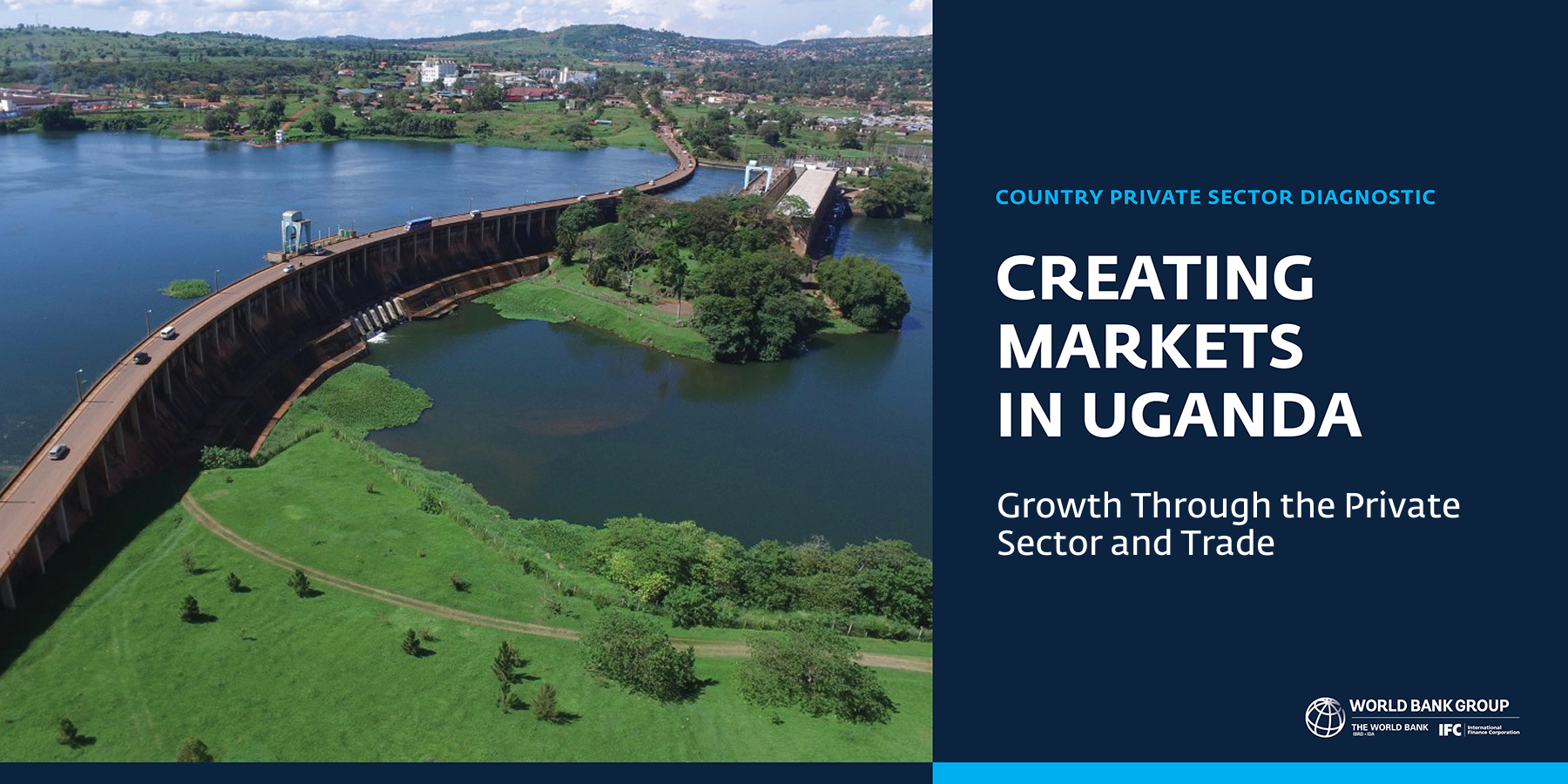
Kampala, Uganda, February 17, 2022 — A report published today by IFC and the World Bank found that Uganda could grow its economy, create jobs, and strengthen its trade position in East Africa by increasing private sector investment in its agribusiness, energy, and housing sectors, and by advancing business climate reforms.
The Country Private Sector Diagnostic (CPSD), jointly produced by IFC and the World Bank, applauds Uganda for its progress in liberalizing parts of its economy and examines areas where increased private sector investment, expertise, and reform could further support growth.
The report found that the energy, housing, and agribusiness (namely fisheries, dairy, and maize) sectors are among those that offer strong potential to address job creation and competitiveness challenges amid high population growth and urbanization.
However, to realize growth in these sectors, Uganda will need to continue advancing reforms and attracting private investment.
"IFC's goal is to help strengthen Uganda's competitiveness, economy, and job creation by supporting increased private sector investment in key growth areas. Uganda has immense potential for progress and IFC is a committed partner helping the country realize its long-term development objectives," said Amena Arif, IFC Country Manager for Uganda.
"A competitive and dynamic private sector is essential for Uganda to create sufficient jobs for a young and rapidly growing labor force. We will leverage the World Bank Group's comparative advantage to bolster the country's private sector and implement meaningful reforms," said Mukami Kariuki, World Bank Country Manager for Uganda.
Over the last two decades, Uganda has had a good track record implementing pro-private sector policies that have led to significant inward investment, high levels of regional trade, and a vibrant informal economy. However, the country's growth rates have recently slowed and there are signs of the government's pro-private sector agenda losing some ground.
The shock of COVID-19 has contributed to economic headwinds impacting Uganda, reversing some recent gains, and sending an estimated 2.6 million Ugandans back into poverty in the short-term.
Other challenges slowing growth in Uganda relate to infrastructure, human capital, institutional capacity, and the land system. The Uganda CPSD found that constraints in these areas limit private sector investment, especially in housing. Housing construction is especially important for post-COVID-19 economic and social recovery because of its ability to create jobs. In energy, the availability of reliable electricity both from a production and distribution perspective, will contribute to the country's competitiveness and presents investment opportunities for the private sector, such as in renewable energy.
The CPSD therefore comes at a crucial time for Uganda, which is working to recover from COVID-19 and fully re-open its economy.
The World Bank Group's CPSDs provide in-depth economic analyses that identify opportunities to unlock private sector investment and create opportunities for more people.
The World Bank Group will channel its private sector development lending, investment, and advisory operations in Uganda to target the sectors and reforms highlighted in the CPSD—and help the Government of Uganda prioritize the actions the report recommends.
The Uganda CPSD can be downloaded here.
About the Country Private Sector Diagnostic (CPSD)
The World Bank Group's Country Private Sector Diagnostics aim to identify sectors where private sector solutions can create or expand markets and make substantial contributions to development impact. Each CPSD includes an assessment of the state of the private sector, identification of near-term opportunities for private sector engagement, and recommendations of reforms and policy actions to mobilize private investment and drive solutions to key development challenges. Selected sector assessments, conducted with significant input from teams across the World Bank Group and from external partners, provide valuable information on the challenges and opportunities to better leverage the private sector to achieve developmental objectives. By combining both economy-wide and sector-specific analysis of constraints, the CPSD helps to create a common analytical basis to shape policy dialogue and guide transformational private investment. Analysis and recommendations of the CPSD inform the World Bank Group's country engagement process, as inputs to the IFC Country Strategy, the broader Systematic Country Diagnostic, and the World Bank Group Country Partnership Framework, as well as lending and advisory services. All CPSDs can be found at ifc.org/CPSD.
About IFC
IFC—a member of the World Bank Group—is the largest global development institution focused on the private sector in emerging markets. We work in more than 100 countries, using our capital, expertise, and influence to create markets and opportunities in developing countries. In fiscal year 2021, IFC committed a record $31.5 billion to private companies and financial institutions in developing countries, leveraging the power of the private sector to end extreme poverty and boost shared prosperity as economies grapple with the impacts of the COVID-19 pandemic. For more information, visit www.ifc.org.
About the World Bank Group
The World Bank Group plays a key role in the global effort to end extreme poverty and boost shared prosperity. It consists of five institutions: The World Bank, including the International Bank for Reconstruction and Development (IBRD) and the International Development Association (IDA); the International Finance Corporation (IFC); the Multilateral Investment Guarantee Agency (MIGA); and the International Centre for Settlement of Investment Disputes (ICSID). Working together in more than 100 countries, these institutions provide financing, advice, and other solutions that enable countries to address the most urgent challenges of development. For more information, please visit www.worldbank.org, www.miga.org, and www.ifc.org
Stay Connected
www.facebook.com/IFCwbg
www.twitter.com/IFC_org
www.youtube.com/IFCvideocasts
www.ifc.org/SocialMediaIndex
www.instagram.com\ifc_org
Contacts
Stay Informed
Sign up to have customizable news & updates sent to you.